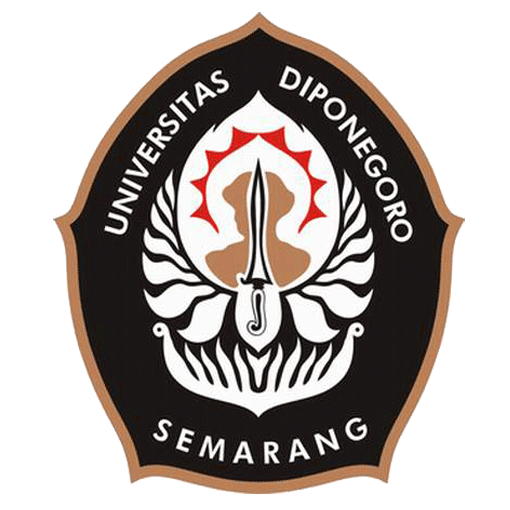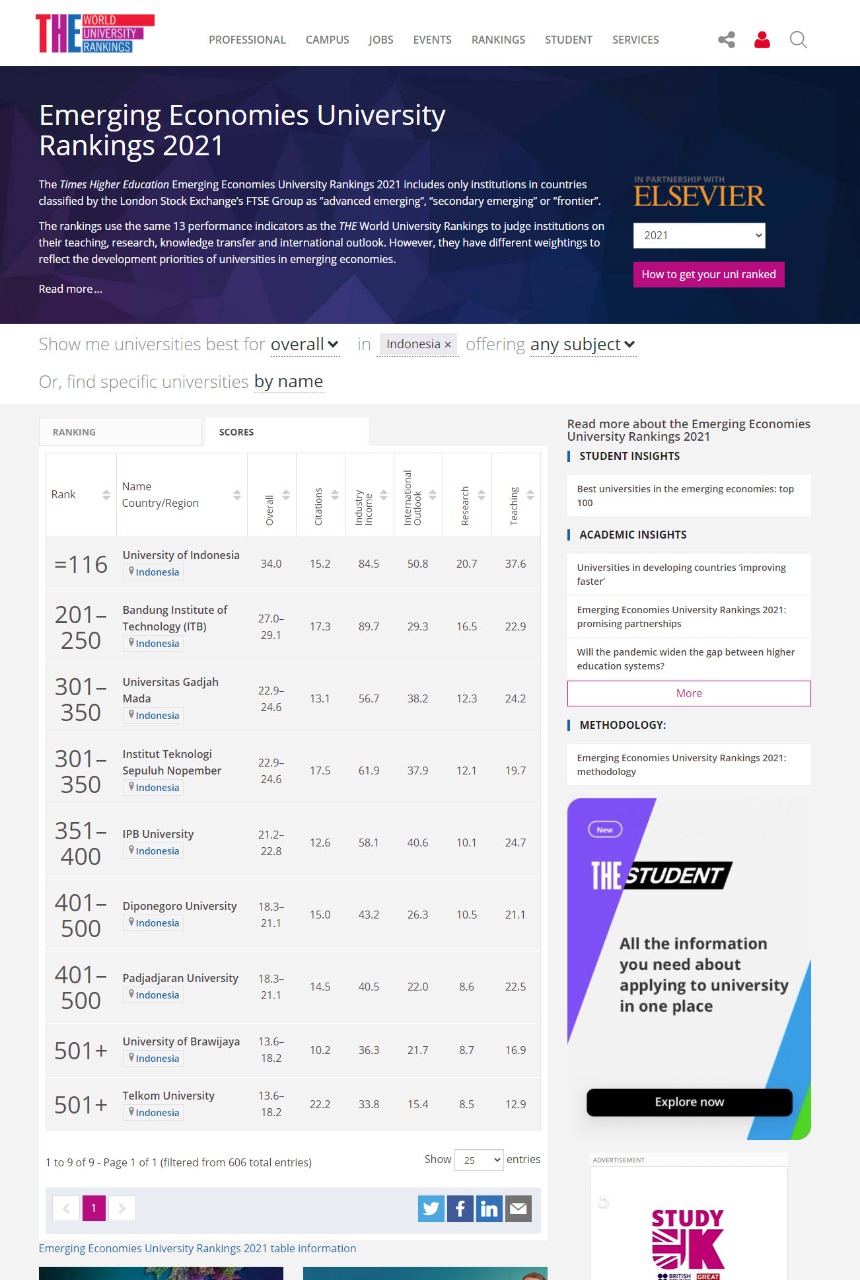SEMARANG – The Times Higher Emerging Economies University Rankings 2021 is the only global ranking agency that conducts assessments of research university intensively across all the core missions of higher education. This time, THE WUR Emerging Economies University Rankings 2021 only assessed institutions in countries classified by London Stock Exchange FTSE Group as advanced emerging, secondary emerging or frontier.
Only 9 universities made it into the ranking in the following order: University of Indonesia, Bandung Institute of Technology, Gadjah Mada University, Sepuluh Nopember Institute of Technology, IPB University, Diponegoro University, Padjajaran University, Brawijaya University and Telkom University. Based on the ranking released on Wednesday (10/3/2021), UNDIP is in the 401-500 ranking category.
Responding to the results of the ranking, UNDIP Rector, Prof. Dr. Yos Johan Utama, S.H., M.Hum., emphasized that the achievements must encourage evaluation and improvement. “We evaluate what is lacking, and continue to improve what we have done. We must not stop improving the quality,” said Prof. Yos Johan, on Thursday (11/3/2021).
He reminded that the achievement of an institution is the result of collective work. Togetherness is the keyword, including the way the team facing obstacles due to Covid-19 pandemic. “In the midst of some limitations, we are grateful for what we can achieve now,” Yos Johan added.
The ranking of THE World University Ranking 2021 uses 13 performance indicators, the same as the previous ranking. Indicators used to assess institutions include their teaching, research, knowledge transfer, and international engagement. However, they have different weights to reflect the development priorities of universities in developing countries.
The performance indicators are grouped into five areas: Teaching (learning environment, infrastructure available to support teachers and students); Research (research reputation as rated by researchers, research productivity, managed research funds); Citation (level of research influence); International work (number of teachers, international students and research collaborations with foreign campuses); as well as knowledge transfer for industry. Of these five fields teaching and research are given the same and highest scores, namely 30% each.
This year, Elsevier supplied the data to assess the level of influence of the research undertaken. A total of 86 million citations of 13.6 million journal articles, seminar proceedings, books, during the last five years are assessed. Overall data is obtained from more than 24,000 academic journals indexed by Elsevier Scopus.
An assessment is also carried out based on the university’s abilities to assist business/industry world in innovation, discovery and consulting. These are analyzed from the amount of income received by universities for conducting research from the business world compared to the number of teaching staff it has.

